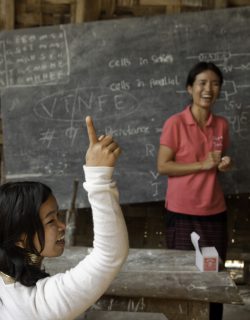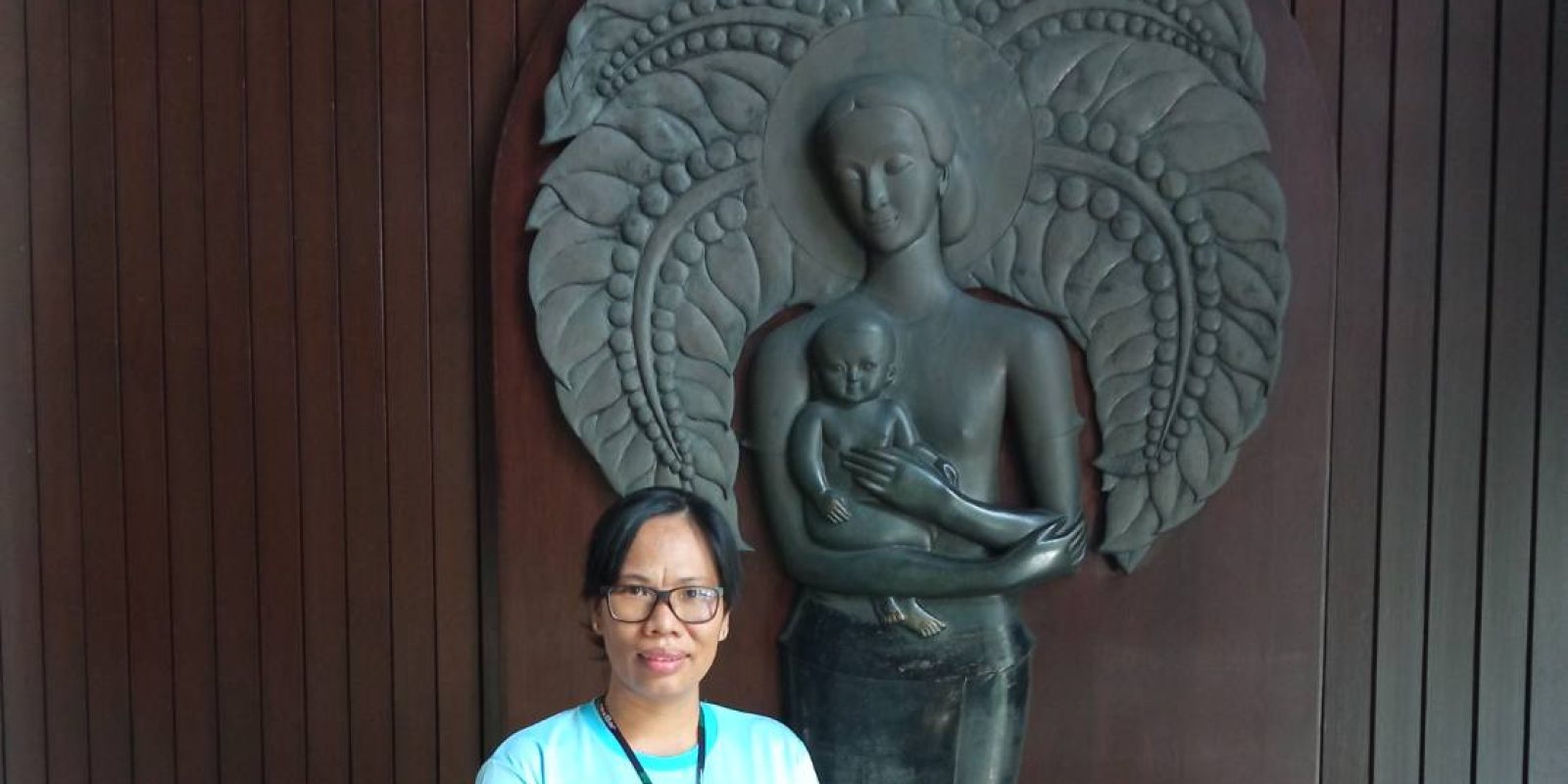Thailand: education as a protective environment
01 July 2007|Kelle Marin Rivers, education programme coordinator, JRS Thailand

How a school can be more than just a place of learning?
In some ways vulnerability and the need for protection define the refugee experience. It is vulnerability and the need for protection that initially prompt people to seek refuge away from their homes. And, whatever the reason for fleeing, that need for protection typically continues after escape. By providing education to children, as well as adults, we help equip refugees with the tools needed to better protect themselves and others from the dangers intrinsic to vulnerable populations.
Education undoubtedly opens doors; exposing people to new ideas and helping them make more informed decisions. In addition, when individuals are part of a larger system, say a school, they are visible to a greater number of people. A child or woman who is neglected or abused should be noticed by his or her teacher.
What happened to Ah Wah (not his real name), a nine year old boy living in one of the camps on the northwestern Thai-Burma border near Mae Hong Son city, is a perfect illustration of how education can serve to protect the most vulnerable. Ah Wah is an AIDS orphan and himself HIV positive. He is currently participating in the inclusive special education programme at one of the camp’s primary schools. Although technically Ah Wah does not fit into the classic definition of a special needs student, there is so much misinformation and fear surrounding HIV that he had to wait a long time to start school. Were it not for the special education class it is doubtful he would have ever received an education at all.
When Ah Wah repeatedly came to school hungry, dirty and with open sores on his body, his teacher became concerned. She monitored his situation and visited the home where he lived with his grandparents. From her visits she discovered that Ah Wah’s grandparents were not giving him the special food rations provided to him through one of the supporting NGOs. She felt Ah Wah was not receiving the care he needed and was concerned when she realised his grandparents were verbally abusive, calling him stupid and lazy even in front of her. When the situation did not improve she eventually decided to discuss Ah Wah’s condition with others. A meeting with camp leaders, education staff and supporting NGOs was held to discuss Ah Wah’s situation. The result was that Ah Wah was taken in by an aunt who was very happy to have him. He continues to attend special education classes at the primary school and is being well looked after at home and at school. Ah Wah’s participation in education provided the essential link to the support and protection he so desperately needed.
Of course the need for protection is not exclusive to refugee camps or the people who live in them. Nevertheless, the degree of vulnerability and need for protection is different. Education is part of a cycle of protection – it keeps people connected, noticed and engaged in something positive.


